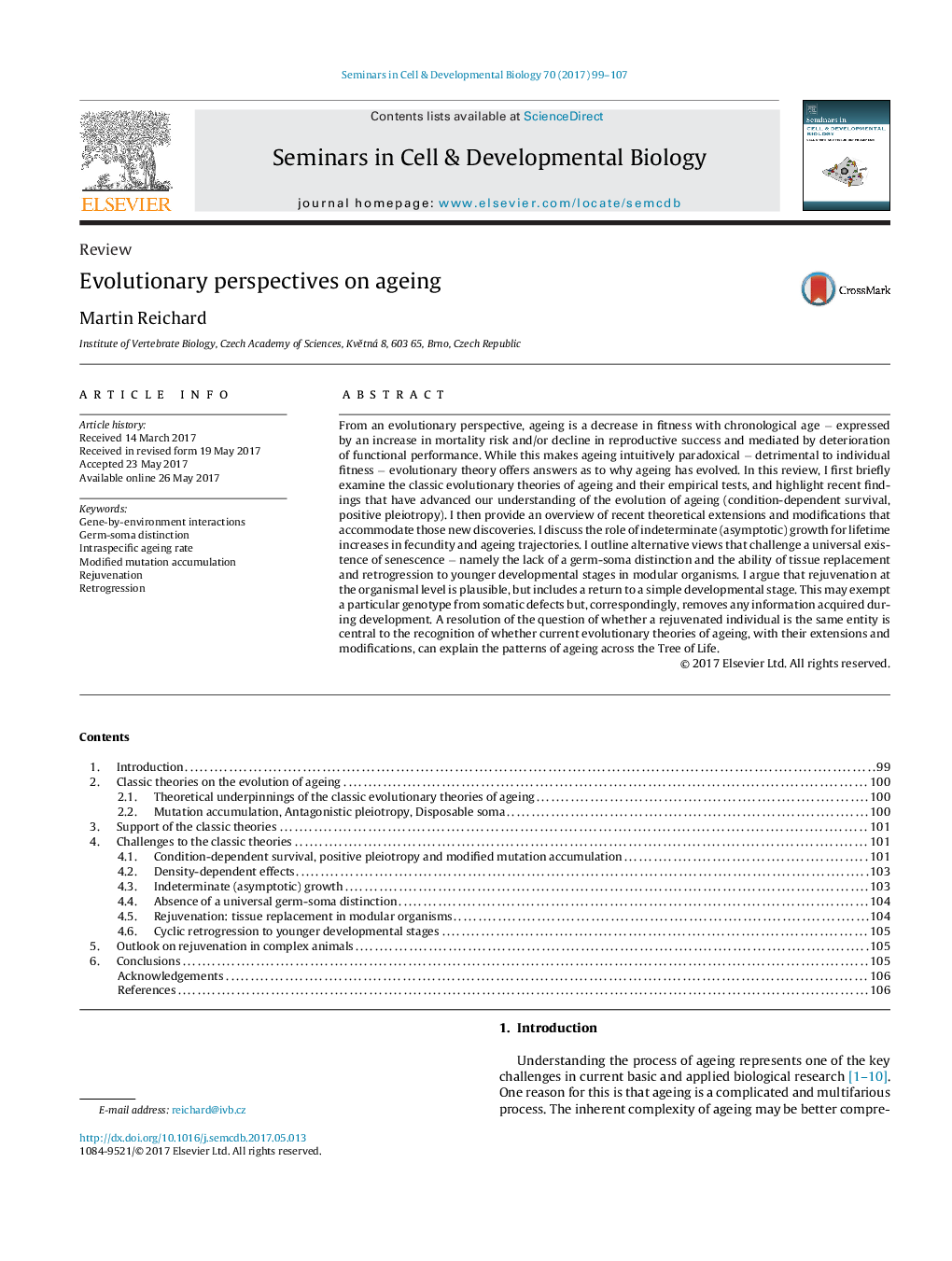| Article ID | Journal | Published Year | Pages | File Type |
|---|---|---|---|---|
| 5534792 | Seminars in Cell & Developmental Biology | 2017 | 9 Pages |
From an evolutionary perspective, ageing is a decrease in fitness with chronological age â expressed by an increase in mortality risk and/or decline in reproductive success and mediated by deterioration of functional performance. While this makes ageing intuitively paradoxical â detrimental to individual fitness â evolutionary theory offers answers as to why ageing has evolved. In this review, I first briefly examine the classic evolutionary theories of ageing and their empirical tests, and highlight recent findings that have advanced our understanding of the evolution of ageing (condition-dependent survival, positive pleiotropy). I then provide an overview of recent theoretical extensions and modifications that accommodate those new discoveries. I discuss the role of indeterminate (asymptotic) growth for lifetime increases in fecundity and ageing trajectories. I outline alternative views that challenge a universal existence of senescence â namely the lack of a germ-soma distinction and the ability of tissue replacement and retrogression to younger developmental stages in modular organisms. I argue that rejuvenation at the organismal level is plausible, but includes a return to a simple developmental stage. This may exempt a particular genotype from somatic defects but, correspondingly, removes any information acquired during development. A resolution of the question of whether a rejuvenated individual is the same entity is central to the recognition of whether current evolutionary theories of ageing, with their extensions and modifications, can explain the patterns of ageing across the Tree of Life.
